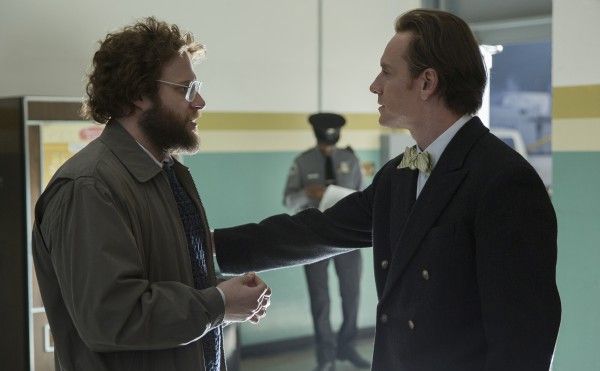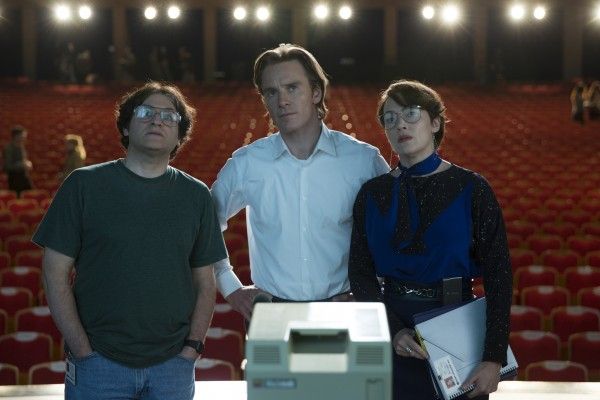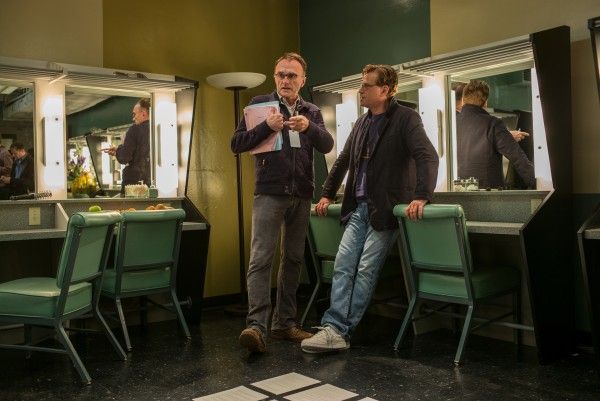After opening to stellar per-theater-average box office in limited release earlier this month, Universal’s unique spin on the biopic genre Steve Jobs expanded wide this weekend to…less than stellar results. Indeed, the critically acclaimed drama pulled in just $7.1 million from over 2,400 screens despite glowing reviews, a buzzy structure, and a stacked ensemble cast. Clearly this isn’t the kind of performance that Universal intended (though it is one that Sony Pictures head Amy Pascal cautioned when the film was set up at Sony), but does this mean that the potential Oscar contender is now dead in the water in terms of awards chances? Quite simply, no.
There are plenty of factors that explain why Steve Jobs didn’t “pop” in wide release—audiences already rejected one Steve Jobs biopic, Michael Fassbender isn’t necessarily a “movie star” draw, and a film about a guy denying paternity doesn’t exactly sing “must-see” on opening weekend—but that doesn’t mean the film’s box office is donezo. Plenty of awards contenders enjoy lengthy theatrical runs that receive boosts once nominations are announced, and I expect we’ll be hearing about Steve Jobs plenty over the next couple of months as the critics awards and precursor ceremonies begin to honor the best of 2015. As the film remains in the pop culture consciousness, I imagine it’ll start to find a bigger audience.
Universal did take a gamble by expanding so wide with this film, but it’s hard to blame them. On paper, the next film from the writer of The Social Network (one can’t help but wonder if David Fincher’s involvement would’ve made a difference in B.O.), a one-of-a-kind narrative structure, and a story about one of the most famous innovators of the modern era is some pretty enticing stuff. But it was, after all, a gamble, and not one that many smaller-budget awards contenders take. Films like Birdman and The King’s Speech took very slow routes to expansion, only going wider after Oscar nominations were announced. And in the case of Birdman, the film was never on more than 1,213 screens at once. Perhaps Steve Jobs should’ve been a slow-burn rather than a big, wide release.
But box office aside, Steve Jobs is still very much a heavy hitter in terms of Oscar. Remember, The Hurt Locker only grossed $17 million domestic and it went on to win Best Picture, and I still think Steve Jobs is a solid bet for a Best Picture nod. Reviews are mighty strong and there’s plenty of enthusiasm for director Danny Boyle’s take on the subject. More akin to a symphony than a feature film, Aaron Sorkin’s script is the star of the show here, and he is undoubtedly on his way towards a second Best Adapted Screenplay nomination if not the early frontrunner to win. There’s also a bounty of well-deserved praise being heaped on Fassbender for his intense leading turn, which tries not to imitate Jobs but instead fleshes out a character all his own. All involved have stressed that this is not attempting to be a 100% accurate account of Steve Jobs’ life, but is instead a portrait of a very complicated man. On that merit it succeeds wonderfully, and I expect we’ll see Fassbender among the year’s Best Actor nominees.
There’s also reason to think that Kate Winslet and Seth Rogen could come away with Supporting Actress and Actor noms, respectively, and I’d go so far as to say they both stand solid chances of winning. There’s no weak link in this ensemble, so I wouldn’t entirely discount the prospects of Michael Stuhlbarg or Jeff Daniels either. Folks in the cinematography branch could also spark to Boyle and director of photography Alwin H. Küchler’s decision to shoot the film’s three sections with three different types of film: 16mm, 35mm, and digital. And while Boyle certainly deserves praise for conducting this orchestra of Sorkin’s, it’s possible the screenplay and performances could overshadow his chances at a Best Director nod—though a nomination is not entirely out of the question for the one-time winner.
So yes, Steve Jobs had a tough time connecting with audiences at large, but this is far from the end of the road. It’ll be interesting to see how the film fares in its second, third, and fourth weeks, and even if it doesn’t pick up steam right away, it’ll no doubt be boosted by recognition from the awards notices to come. And even if it doesn’t ever pop at the box office, it’s still a formidable Oscar contender anyway. Far from a failure, Steve Jobs will find its audience. Eventually.
For more Oscar Beat articles, click here.




